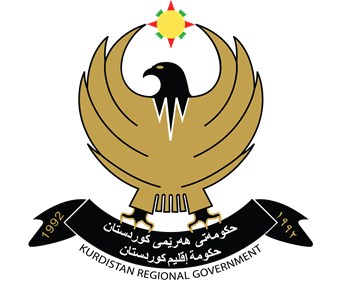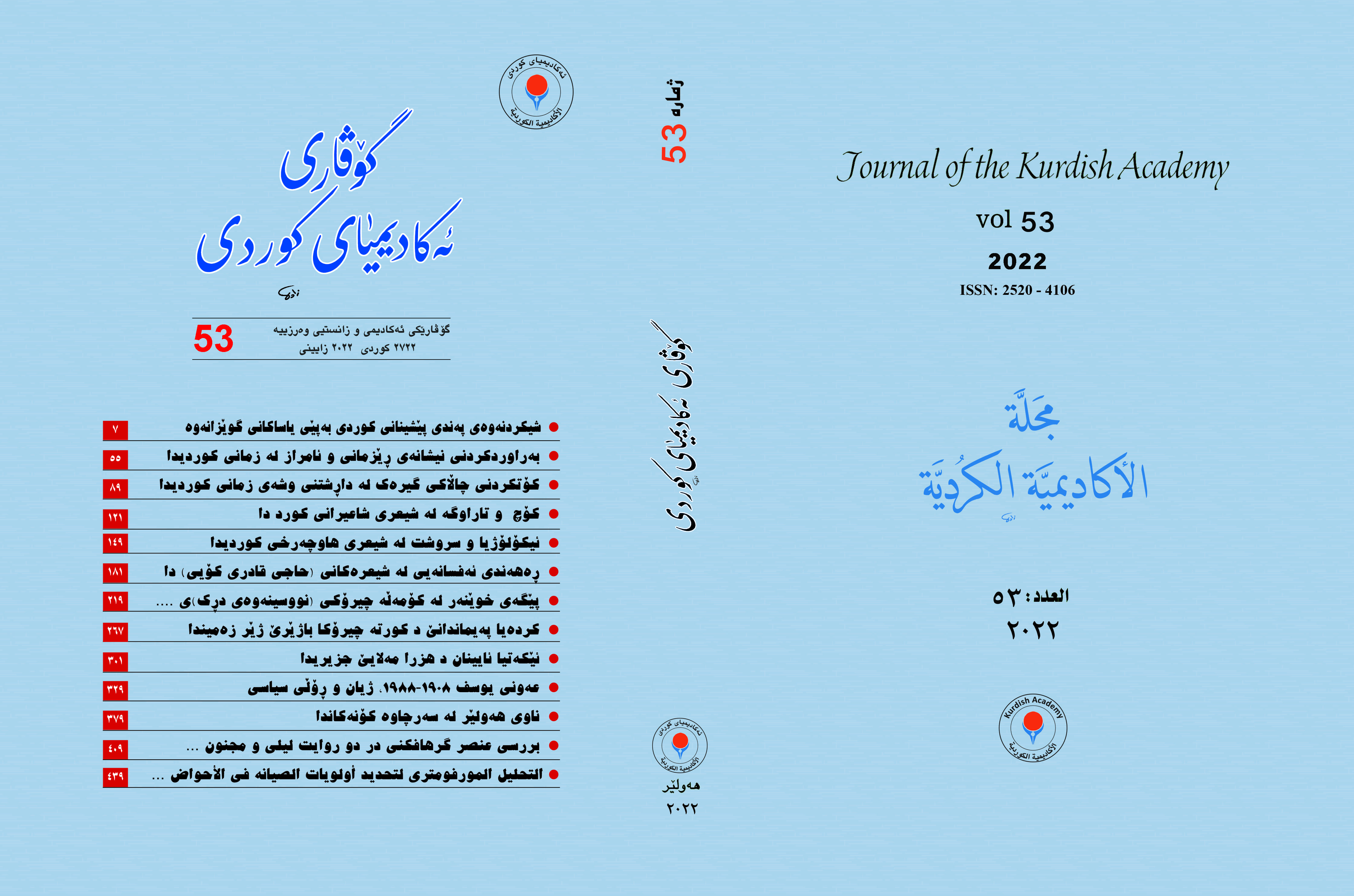ئێكهتیا ئایینان د هزرا مهلایێ جزیریدا
DOI:
https://doi.org/10.56422/ka..53.126Keywords:
Sufism, Sufism and literature, Unity of religions, Jaziri, religious words and termsAbstract
The emergence of irfani (mystic) poetry in the Islamic world is one of the most potential literary trends and includes many significant topics, the unity of religions being an example. This article investigates the acceptance of the thought of several religions in one person. The leader of this theory is Ibn Arabi (1165-1240 CE). (Unity of Religions in Jaziri's Thought) is one of the interesting topics in his diwan (collection of poems) and covers a significant portion of it. With an irfani notion, he strongly emerges in the 19th century AH. Obviously, Jaziri has benefited from each of the concepts of religions (Christian, Yezidi, Jewish, etc.). In spite of divine religions, Jaziri has also referred to non-divine religions, such as idolatry.
The research has relied on the descriptive-analytical method, by conducting interpretation of poetic verses from Jaziri’s Diwan followed by presenting the research results





